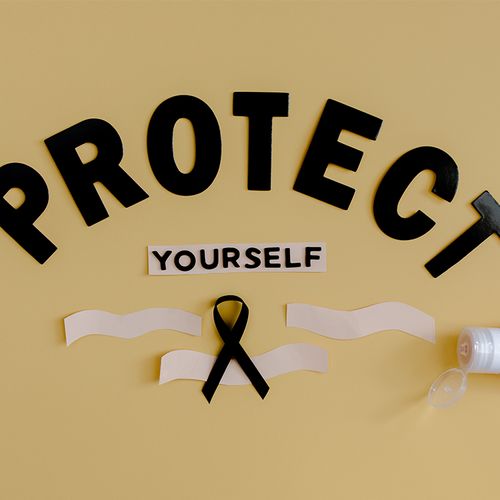If you've had a basal or squamous cell skin cancer removed, as so many people have, you know all about the anxiety that experience leaves you with. Will it come back? Will you get more of them? Or, worst of all, does this mean you are likely to get the far more serious and worrisome melanoma?
Here’s The Truth
Sadly, yes, people who have had basal or squamous cell skin cancers are statistically more likely to later develop the deadly skin cancer melanoma than those who haven't had any skin cancers. In fact, a history of any kind of cancer ups your statistical risk for having another-but research suggests that this is especially so with skin cancer.
Now comes the good news. A group of researchers at Stanford University's School of Medicine has found evidence that taking calcium and vitamin D supplements significantly cuts the risk of developing melanoma in a group of women who had previously had nonmelanoma skin cancers.
Research Results
The researchers learned this by analyzing a large pool of data from the 15-year Women's Health Initiative—36,000 women, ages 50 to 79. were followed for an average of seven years. While the study was initiated to investigate the effects of calcium and vitamin D on hip fractures and colorectal cancers, researchers also looked at whether these supplements affect risk for melanoma-and the researchers were pleasantly surprised.
Half the women in the study took a daily supplement containing 1,000 mg of calcium and 400 IU of vitamin D, while the other half took a placebo pill.
Findings: Those who took calcium and vitamin D were half as likely to develop melanoma subsequent to their other skin cancers, Surprisingly, the researchers also learned that this protective effect helped only those who had had previous skin cancers. Calcium and vitamin D had no apparent effect on melanoma risk in those who had been skin-cancer free.
On the downside, there was a higher incidence of kidney stones among the calcium/vitamin D takers...and emerging research now suggests that very high levels of supplemental vitamin D may encourage certain skin cancers, so none of us should start gulping vitamin D without speaking to a doctor first. The results were published online in the Journal of Clinical Oncology.
Questions And Advice
As noted by lead researcher Jean Y. Tang, MD, PhD, assistant professor of dermatology at the Stanford University School of Medicine, lots of questions remain. For one thing, men weren't included in the Women's Health Initiative, so it's unclear whether they would derive the same benefit from taking the calcium and vitamin D combo. It's also not known whether natural sources of vitamin D (such as sunshine) and calcium (such as from leafy greens and dairy) would have the same effect as the supplements.
Dr. Tang's advice: If you have had basal cell or squamous cell skin cancer and spend your time indoors for the most part.. and/or are a postmenopausal woman (since many are considering calcium supplementation anyway to protect against bone loss), you might discuss a low-dose calcium and vitamin D supplement with your health-care provider. She mentioned also that her team continues to study this issue-focusing particularly on the potential relationship between vitamin D and cancer prevention-with a study that will compare blood levels of vitamin D with the incidence of melanomas.
Test Predicts Lung Cancer Survival
Two recent studies involving a total of 1,439 early-stage lung cancer patients found that a new test, known as a molecular assay, correctly predicts whether a patient's odds of death within five years of lung cancer surgery are low, intermediate or high by measuring the activity of 14 genes in cancerous tissue.
Benefit: Knowing a patient's prognosis helps doctors determine whether standard postoperative treatments, such as chemotherapy, should be considered.
